About the editors
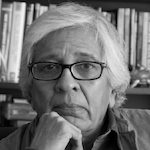
Salman Akhtar, MD, is Professor of Psychiatry at Jefferson Medical College and a Training and Supervising Analyst at the Psychoanalytic Center of Philadelphia. He has served on the editorial boards of The International Journal of Psychoanalysis, the Journal of the American Psychoanalytic Association, and the Psychoanalytic Quarterly. His nearly 400 publications include over 100 books, of which the following 22 are solo-authored: Broken Structures (1992), Quest for Answers (1995), Inner Torment (1999), Immigration and Identity (1999), New Clinical Realms (2003), Objects of Our Desire (2005), Regarding Others (2007), Turning Points in Dynamic Psychotherapy (2009), The Damaged Core (2009), Comprehensive Dictionary of Psychoanalysis (2009), Immigration and Acculturation (2011), Matters of Life and Death (2011), The Book of Emotions (2012), Psychoanalytic Listening (2013), Good Stuff (2013), Sources of Suffering (2014), No Holds Barred (2016), A Web of Sorrow (2017), Mind, Culture, and Global Unrest (2018), Silent Virtues (2019), Tales of Transformation (2021), and In Leaps and Bounds (2022).
Dr Akhtar has delivered many prestigious invited lectures including a Plenary Address at the 2nd International Congress of the International Society for the Study of Personality Disorders in Oslo, Norway (1991), an Invited Plenary Paper at the 2nd International Margaret S. Mahler Symposium in Cologne, Germany (1993), an Invited Plenary Paper at the Rencontre Franco-Americaine de Psychanalyse meeting in Paris, France (1994), a Keynote Address at the 43rd IPA Congress in Rio de Janiero, Brazil (2005), the Plenary Address at the 150th Freud Birthday Celebration sponsored by the Dutch Psychoanalytic Society and the Embassy of Austria in Leiden, Holland (2006), and the Inaugural Address at the first IPA-Asia Congress in Beijing, China (2010).
Dr Akhtar is the recipient of numerous awards including the American Psychoanalytic Association’s Edith Sabshin Award (2000), Columbia University’s Robert Liebert Award for Distinguished Contributions to Applied Psychoanalysis (2004), the American Psychiatric Association’s Kun Po Soo Award (2004) and Irma Bland Award for being the Outstanding Teacher of Psychiatric Residents in the country (2005). He received the highly prestigious Sigourney Award (2012) for distinguished contributions to psychoanalysis. In 2013, he gave the Commencement Address at graduation ceremonies of the Smith College School of Social Work in Northampton, MA.
Dr Akhtar’s books have been translated into many languages, including German, Italian, Korean, Persian, Romanian, Serbian, Spanish, and Turkish. A true Renaissance man, Dr Akhtar has served as the Film Review Editor for The International Journal of Psychoanalysis, and is currently serving as the Book Review Editor for the International Journal of Applied Psychoanalytic Studies. He has published 9 collections of poetry and serves as a Scholar-in-Residence at the Inter-Act Theatre Company in Philadelphia.
To view all our titles from Salman Akhtar, click here.

April Fallon, Ph.D. is the Faculty Chair and Professor of Clinical Psychology at Fielding Graduate University and Clinical Professor in psychiatry at Drexel College of Medicine. She received her baccalaureate degree from Allegheny College (1975) and a Doctor of Philosophy in Psychology at the University of Pennsylvania (1981). She has received numerous awards for her teaching of psychiatric medical residents including the Psychiatric Educator 2012 from Philadelphia Psychiatric Society. She has co-authored six books with Virginia Brabender: Models of Inpatient Group Psychotherapy (1993), Awaiting the Therapist’s Baby: A Guide for Expectant Parent-Practitioners (2003), Essentials of Group Psychotherapy (2004), Group Development in Practice: Guidance for Clinicians and Researchers on Stages and Dynamics of Change (2009), The Impact of Parenthood on the Therapeutic Relationship: Awaiting the Therapist’s Baby (2018, 2nd Ed.), and Group Psychotherapy in Inpatient, Partial Hospital, and Residential Care settings (2019). She also has co-edited an additional volume, Working with Adoptive Parents: research, Theory and Therapeutic Interventions (2013). In addition, she has researched and written on the development of disgust in children and adults, body image and eating disorders, the effects of childhood maltreatment, attachment and adoption.
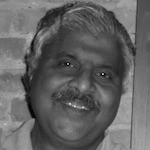 Rama Rao Gogineni, M.D. is Division Head of Child Psychiatry at Cooper University Hospital and Professor in Psychiatry at Cooper Medical School of Rowan University. He received his M.D. degree from Osmania University in India (1972). He completed his General Psychiatry Residency from the University of Pennsylvania School of Medicine (1979) and his Child and Adolescent fellowship from Medical College of Pennsylvania (1982). He obtained a Master’s degree in Family Therapy from the Family Institute of Philadelphia. He completed his psychoanalytic training from the Psychoanalytic Center of Philadelphia. Dr. Gogineni served as President of Philadelphia Psychiatric Society, Regional Counsel of Child and Adolescent Psychiatry of Eastern Pennsylvania, South Asian American Forum, and American Association for Social Psychiatry. He is a Distinguished Fellow of the American Psychiatric Association, The Academy of Child and Adolescent Psychiatry, and a member of the American College of Psychiatrists. He has written and presented on various aspect s of fatherhood, attachment, revenge, adoption, immigration, depression, neurobiology, and gratitude.
Rama Rao Gogineni, M.D. is Division Head of Child Psychiatry at Cooper University Hospital and Professor in Psychiatry at Cooper Medical School of Rowan University. He received his M.D. degree from Osmania University in India (1972). He completed his General Psychiatry Residency from the University of Pennsylvania School of Medicine (1979) and his Child and Adolescent fellowship from Medical College of Pennsylvania (1982). He obtained a Master’s degree in Family Therapy from the Family Institute of Philadelphia. He completed his psychoanalytic training from the Psychoanalytic Center of Philadelphia. Dr. Gogineni served as President of Philadelphia Psychiatric Society, Regional Counsel of Child and Adolescent Psychiatry of Eastern Pennsylvania, South Asian American Forum, and American Association for Social Psychiatry. He is a Distinguished Fellow of the American Psychiatric Association, The Academy of Child and Adolescent Psychiatry, and a member of the American College of Psychiatrists. He has written and presented on various aspect s of fatherhood, attachment, revenge, adoption, immigration, depression, neurobiology, and gratitude.

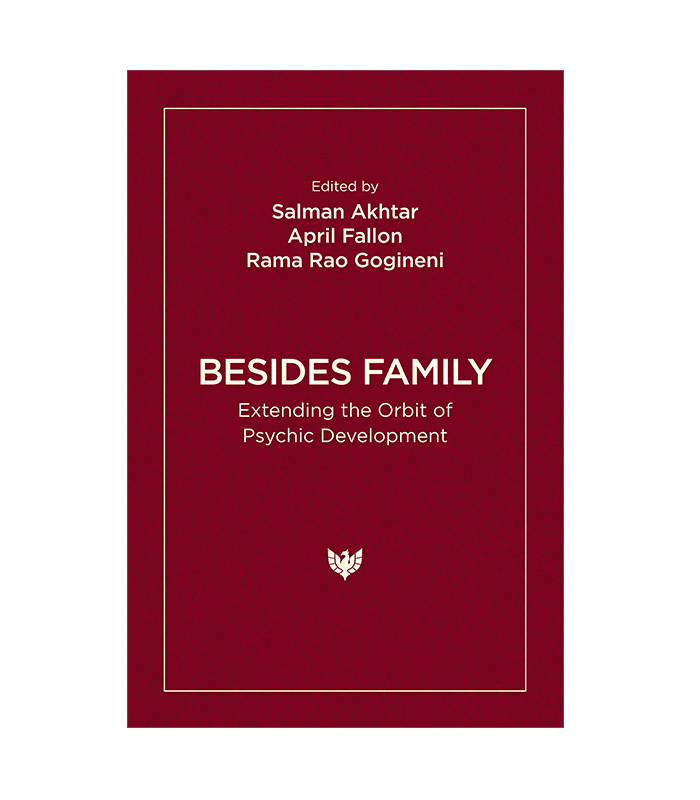
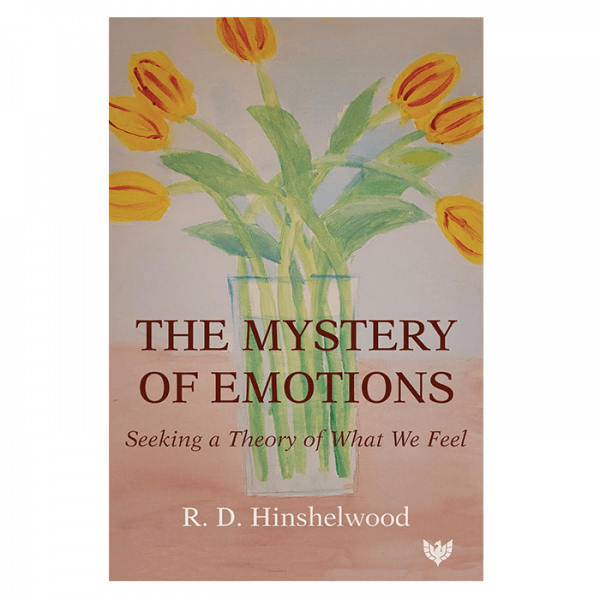
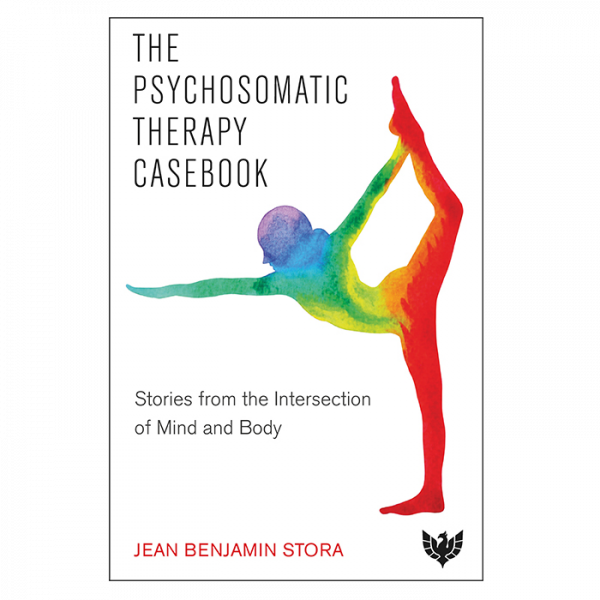


 Rama Rao Gogineni, M.D. is Division Head of Child Psychiatry at Cooper University Hospital and Professor in Psychiatry at Cooper Medical School of Rowan University. He received his M.D. degree from Osmania University in India (1972). He completed his General Psychiatry Residency from the University of Pennsylvania School of Medicine (1979) and his Child and Adolescent fellowship from Medical College of Pennsylvania (1982). He obtained a Master’s degree in Family Therapy from the Family Institute of Philadelphia. He completed his psychoanalytic training from the Psychoanalytic Center of Philadelphia. Dr. Gogineni served as President of Philadelphia Psychiatric Society, Regional Counsel of Child and Adolescent Psychiatry of Eastern Pennsylvania, South Asian American Forum, and American Association for Social Psychiatry. He is a Distinguished Fellow of the American Psychiatric Association, The Academy of Child and Adolescent Psychiatry, and a member of the American College of Psychiatrists. He has written and presented on various aspect s of fatherhood, attachment, revenge, adoption, immigration, depression, neurobiology, and gratitude.
Rama Rao Gogineni, M.D. is Division Head of Child Psychiatry at Cooper University Hospital and Professor in Psychiatry at Cooper Medical School of Rowan University. He received his M.D. degree from Osmania University in India (1972). He completed his General Psychiatry Residency from the University of Pennsylvania School of Medicine (1979) and his Child and Adolescent fellowship from Medical College of Pennsylvania (1982). He obtained a Master’s degree in Family Therapy from the Family Institute of Philadelphia. He completed his psychoanalytic training from the Psychoanalytic Center of Philadelphia. Dr. Gogineni served as President of Philadelphia Psychiatric Society, Regional Counsel of Child and Adolescent Psychiatry of Eastern Pennsylvania, South Asian American Forum, and American Association for Social Psychiatry. He is a Distinguished Fellow of the American Psychiatric Association, The Academy of Child and Adolescent Psychiatry, and a member of the American College of Psychiatrists. He has written and presented on various aspect s of fatherhood, attachment, revenge, adoption, immigration, depression, neurobiology, and gratitude.
Aisha Abbasi, MD, Training and Supervising Analyst, Michigan Psychoanalytic Institute; Author of ‘Rupture of Serenity: External Intrusions and Psychoanalytic Technique’ –
‘This edited volume by Salman Akhtar and his colleagues methodically addresses the often neglected developmental impact of relationships with people other than one’s parents and siblings. This is a fresh topic indeed. For all of us who constantly strive to understand ourselves and our patients, a thoughtfully compiled collection of papers on this novel orbit of psychic development is a superb gift.’
Jonathan Sklar, FRCPsych, Training Analyst, British Psychoanalytical Society; Author of ‘Dark Times: Psychoanalytic Perspectives on Politics, History and Mourning’ –
‘Besides Family uncovers an important lacuna in psychoanalytic literature. It reveals fertile furrows to plough in this wide-ranging and engaging book.’
Mary Kay O’Neil, PhD, Training and Supervising Analyst, Toronto Institute of Psychoanalysis; Author of ‘Mothering Alone: A Plea for Opportunity’ –
‘As psychoanalysts, our emphasis has traditionally been on the effects of various family members on psychic development. Non-familial figures important for ego growth have been neglected. Such “significant others” differ for each of us but it is valuable for the clinician to know which “others” support a person undergoing psychotherapy or psychoanalysis. Besides Family stimulated me to think more deeply about my internally significant others and pay closer attention to such presences in the lives of my patients.’
Martin Weegmann, Psychodynamic Practice, 2024 –
‘A short review cannot do justice to each chapter, suffice to say that the contents covered are- nannies, neighbours, school teachers, playmates/friends, clergy, adolescent peers, lovers and professional mentors. The observations are wide ranging […] Akhtar’s chapter, like all his writing, is comprehensive in scope […] This is a valuable publication and traces an expanding ‘orbit’ worth following and important to do so.’
Jane Cooper, MBACP (Snr Accred), former senior counsellor in higher education, BACP Therapy Today, May 2024, 35:4 –
‘Every chapter taught me something new. […] An overarching theme is a belief in the strength of the individual’s developmental drive, that desire to repeat the past but find a different outcome. The chapter on lovers is a good example of this with eight beautiful clinical vignettes illustrating the movement over the lifespan towards mature love. Psychopathology is not ignored but the emphasis is on opportunities for growth. This is an accessible and thoughtful book that illustrates the wisdom of the old African saying it quotes: “It takes a village to raise a child”.’